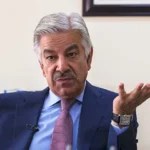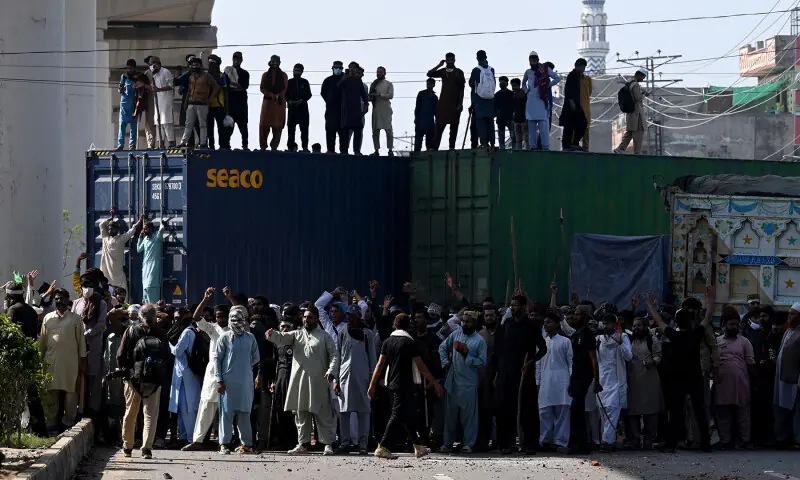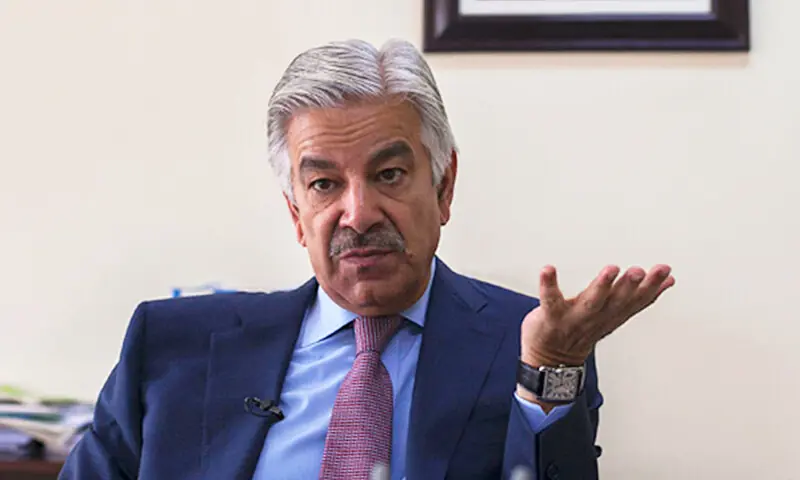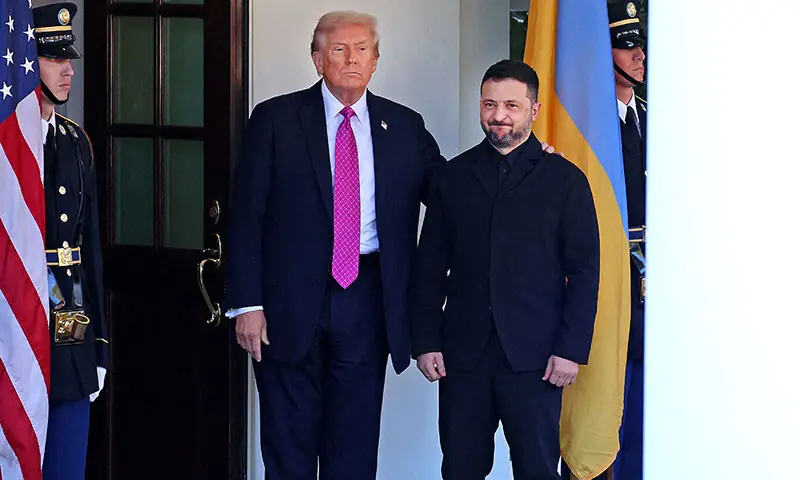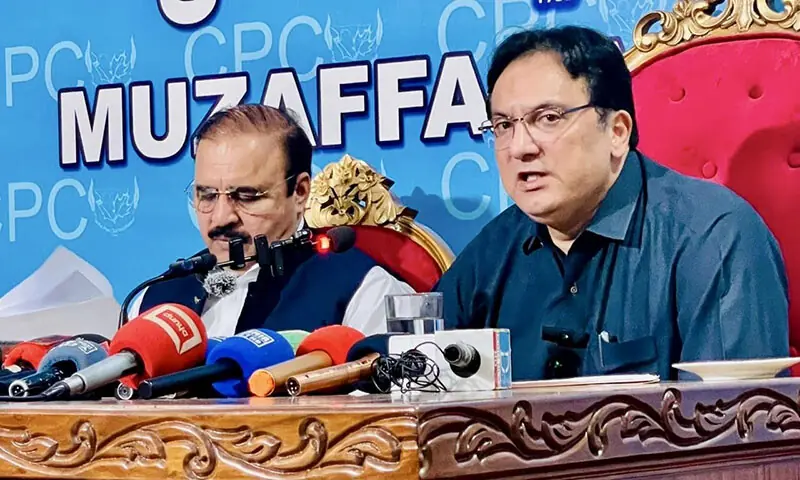The Punjab government today announced its intention to recommend a ban on the religious political party Tehreek-i-Labbaik Pakistan (TLP), after violent clashes between the party and police in Muridke earlier in the week led to the arrest of 2,716 protesters in the province.
The party had undertaken what it described as a “Gaza solidarity” march, vowing to reach Islamabad and protest outside the US embassy. However, in a massive crackdown, law enforcement launched a pre-dawn operation on Monday to dismantle the party’s protest camp, leading to clashes, widespread chaos and arrests.
Furthermore, the number of cases registered against the group has reached 72, with at least 39 registered in Lahore, amid arrests of second and third tier leaders of the TLP, which is said to be the highest number of criminal cases against the TLP across Punjab in recent years.
The decision to ban the TLP is being linked to some crucial meetings, where its record of violent agitations, fatal attacks on law enforcement and looting of Christian and Ahmadiyya places of worship were discussed.
How does banning a match work?
The National Counter-Terrorism Authority (Nacta) maintains lists of banned individuals and groups, according to which those designated as “terrorists” or associated with terrorism face serious consequences, such as travel bans and sanctions.
The Fourth Schedule of the Anti-Terrorism Act (ACA) 1997, a watch list for persons affiliated with terrorist groups or activities, is also used as a means of monitoring and restricting terrorism.
Historically, the list has included militant groups such as Tehreek-i-Taliban Pakistan (TTP) and Hizbut Tahrir; banned sectarian groups like Lashkar-i-Jhangvi, extremist organizations like Jaish-i-Mohammad; and outlawed separatist groups such as the Baloch Liberation Army (BLA).
However, authorities have widened their net in recent years to include an increasing number of people from Khyber Pakhtunkhwa and Balochistan.
Although it is common practice for Pakistan’s ruling powers to attempt to ban political and other organizations based on conflicts of interest, the government has limited powers to seal the fate of its political rivals.
The provincial government can request that a ban be imposed on a party, as in the case of the TLP. In turn, the federal government has the power to refer this application to the Supreme Court, declaring that the party “has been formed or is functioning in a manner prejudicial to the sovereignty or integrity of Pakistan,” according to Article 17(2) of the Constitution.
However, according to analysts, the final decision to ban a political party rests with the Supreme Court (SC), as established by the Constitution.
“The federal government, within fifteen days of said declaration, will refer the matter to the Supreme Court, whose decision on said referral will be final,” the article says.
According to a previous analysis of Sunrise From the relevant constitutional and legal provisions, the government can invoke Article 17 (2) to ban a political party or section 212 of the Electoral Act, 2017 to request its dissolution.
This last law also establishes that the Government can make a declaration in this regard, but the matter will be referred to the SC for resolution.
As a result, most attempts to ban a political party have failed.
A long history of prohibitions
This is far from the first time in Pakistan’s history that the government has taken steps to impose a ban on a political party.
In October last year, the ban on the Pashtun Tahafuz Movement (PTM), a social movement for the rights of Pashtuns in KP and Balochistan, was announced.
Furthermore, in July 2024, the federal government declared its intention to ban former Prime Minister Imran Khan’s PTI, just as it was about to become the largest party in the National Assembly.
Before PTI, it was Sheikh Mujibur Rahman’s Awami League. In March 1971, the Awami League was banned and 76 of its 160 elected members were disqualified as traitors. The protest against this measure was followed by a broader movement that led to the establishment of Bangladesh, with Rahman as its first prime minister.
The TLP itself was already banned once in 2021, after previous protests led to the deaths of several police officers. The ban was approved by the federal cabinet and enforced under the Anti-Terrorism Act of 1997.
However, the ban was lifted after a few months, when the party filed a review petition and protests continued. The detained party chief, Saad Rizvi, was also released.


